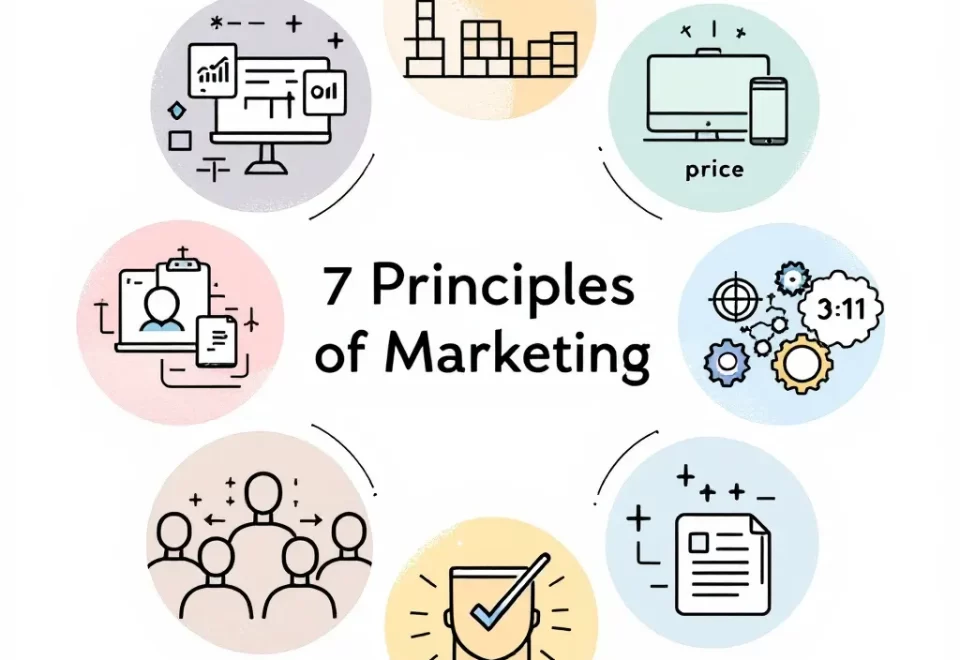Keywords are at the core of good SEO. That’s a fact which shouldn’t surprise you if you’ve spent any amount of time reading up on how to optimize your site so it flies high in Google’s organic search rankings.
What might be more game-changing is that businesses which want to grow rapidly and connect with the right customers more easily should be looking for mini-volume keywords.
There’s a lot to unpack here, so without further ado let’s disassemble the amazing concept of mini-volume keyword targeting, explain why it works, and look at ways of leveraging this yourself.
What are Mini-Volume Keywords?
This term describes keywords that don’t have very high search volumes associated with them. In short, not many people are using Google and other platforms to look for certain keywords and phrases.
Why Don’t More Sites Target Them?
You might think that if there’s value to be gained from turning your attention to mini-volume keywords, it should be embraced by every business out there.
The problem comes from the way that many sites carry out keyword research. Some research tools will advise against low volume phrases automatically, because there is a long-standing assumption that it’s harder to gain traction if the audience you’ve set your sights on is so tiny.
However, part of learning how to select keywords is understanding the underlying importance of lesser-searched terms, and not blindly following the suggestions of whatever software solution you’re using.
What Makes Mini-Volume Keywords Impactful?
The principal appeal here is that while volumes may be low, conversion rates are much higher. It all comes down to the specificity of the search and the lack of competition.
If you’re targeting a keyword combo which only sees a handful of hits every week or month, then it’s very likely you’ll also manage to rank close to the top of the SERPs, if not right at the pinnacle.
In turn, this translates into clicks from interested prospects. And if you’ve optimized your landing page effectively, the upshot will be a conversion and ideally a long-term customer for your business.
Now there’s no question that the numbers might still be modest. But the point is to break away from the prejudice of seeing very low volume keywords as a waste of time to target and appreciate that the value they deliver tends to be realized in the long term, rather than as a flash-in-the-pan success. Mini-volume keywords should always be part of your keyword research checklist. You will be surprised by how much organic traffic they can bring.
Do you want to attract new customers by targeting mini-volume keywords?
What Content Works Well for Targeting Purposes?
If we’ve convinced you that mini-volume keywords deserve your attention, then the next step to hacking the growth of your business is creating content that works with them.
There are a number of routes to take here and combining several strategies for generating article ideas is better than pegging all of your hopes on just one. So, what are these options?
Content based on competitor comparison
It might seem churlish, but you can actually generate a surprising amount of engagement with articles that offer up alternatives to dominant forces in your marketplace. This sales targeting approach has proven to do wonders.
Enough people out there will be fed up with the products and services of your rivals and will want to search out equivalent offerings from alternative brands.
Thus, keywords which include your competitors name, alongside the word ‘alternative’, are a rich seam to mine.
You can publish this content on your own site, and of course mention the benefits of your business as a viable stand-in for disgruntled customers of the competition. You can also publish it elsewhere, and rely on click-throughs to convert customers, although this adds an extra layer between you and would-be leads, so isn’t always ideal.
Conversion rates for competitor comparison articles are higher than other topics, so even if they won’t get as much engagement, they can rank highly and give you quality over quantity, which is the whole point of mini-volume keywords.
Content that offers niche advice
Another area worth focusing on is the production of articles that provide advice that is specific to the niche that your business serves.
Obviously, you could throw a wider net with all-purpose copy that appeals to everyone under the sun. But there’s a high likelihood that it simply won’t rank well, because it’s vying for attention among a crowd of better-established sites with higher authority and improved optimization.
One example of this which is tracking well for those that try it is publishing how-to pieces that give readers tips on what they can do to start their own business in the same industry as yours.
If what you offer is relevant to companies in this space, you’ll likely reel in other entrepreneurs who have a need for your products or services. And once again, these moderate conversion figures will translate into long-lasting relationships with clients that can grow along with your business.
Content explaining a specific feature or function
When it comes to specificity, nothing will set you apart and allow for mini keyword targeting like content that’s written with your own offerings in mind.
You can single out a use case, for example, and have this be the lynchpin around which you hang the rest of the piece, including keywords that you have discovered from your research.
It might be that people are looking for what they need to do to unlock the potential of a rival’s product or service, but if they find your content and it scratches that itch, they could jump ship to connect with you instead.
Why Does This Work?
We’ve discussed how targeting mini-volume keywords can bring visitors to your site, but what’s the secret when it comes to actually converting them?
Well, it’s all about where the keywords targeted sit on your sales funnel. Typically, the high-volume terms will be close to the top, meaning that a prospect will be earlier in their journey, and so there’s more opportunity for them to drop off and leave you in the lurch.
Conversely, with mini-volume keywords, you’re getting bottom-of-funnel phrases that engage users who are already on the brink of converting, and just need a little push to tip over into your camp.
The main motivator here is conversion intent. People casually searching for a broad product category are a long way from committing. Those looking with specific terms and long-tail phrases are ripe for the plucking.
What About Broader Keyword Targeting Tactics?
At this point it is a good idea to clear something up; you shouldn’t go all-in on targeting mini-volume keywords. As good as they are, they have to be just one element of your wider strategy for achieving growth.
Mixing things up with content that’s geared toward higher volume words and phrases is also necessary, along with paid acquisition campaigns. It’s only through this diversity that you stand the best chance of achieving your goals.
How Long Will It Take?
The actual keyword research and content generation doesn’t need to take too long, and once you’ve published, it’s a case of sitting back and being patient.
The reality is that you will likely need to hold out for a few months before your content ranks anywhere near the top of SERPs in the case that higher volume terms are in your sights. With mini-volume keywords being targeted, things are a little different.
It’s not unusual for this tactic to bear fruit in a week or two, and the reason is that without as much competition to worry about, you will gain the attention of the search algorithms faster than would normally be the case.
Obviously, you’ll still need to ensure that your content meets expected standards in terms of quality, length and other major metrics. But it won’t be long before you find out whether you’ve hit the nail on the head or not.
Drive organic traffic to your website by targeting mini-volume keywords.
What About the Future?
The last point to make is that keyword trends rise and fall rapidly, and phrases which start off with very low search volumes could go stratospheric under the right conditions.
This won’t happen for every term you target, but the possibility of suddenly having a niche piece seen by lots of visitors because of outside market forces is appealing in its own right.
Final Thoughts About Targeting Mini-Volume Keywords To Growth Hack Your Business
There’s a lot to take in here, but if you’ve stuck with us to the end, you’re in a stronger position than when you started reading about mini-volume keywords.
A combination of rigorous research and carefully composed content will give you good results but remember that this is not a tactic that will pay dividends overnight. Indeed because of the volumes of searches involved, it will be more of a trickle than a flood, and that’s fine.
Businesses that stand the test of time know when to be patient, when to chase long-term value over short-term gain, and when to do things differently from their larger rivals. With the appeal of the approach to keyword targeting outlined above, so if you’re looking for a new solution to generate leads and boost conversion rates, you’ve found it.
GrowthHackers is a full-service growth hacking agency helping businesses from all over the world grow. There is no fluff with Growth Hackers. We help entrepreneurs and business owners optimize their mini-volume keywords to improve their SEO, generate qualified leads, optimize their conversion rate, gather and analyze data analytics, acquire and retain users and increase sales. We go further than brand awareness and exposure. We make sure that the strategies we implement move the needle so your business grow, strive and succeed. If you too want your business to reach new heights, contact Growth Hackers today so we can discuss about your brand and create a custom growth plan for you. You’re just one click away to skyrocket your business.







